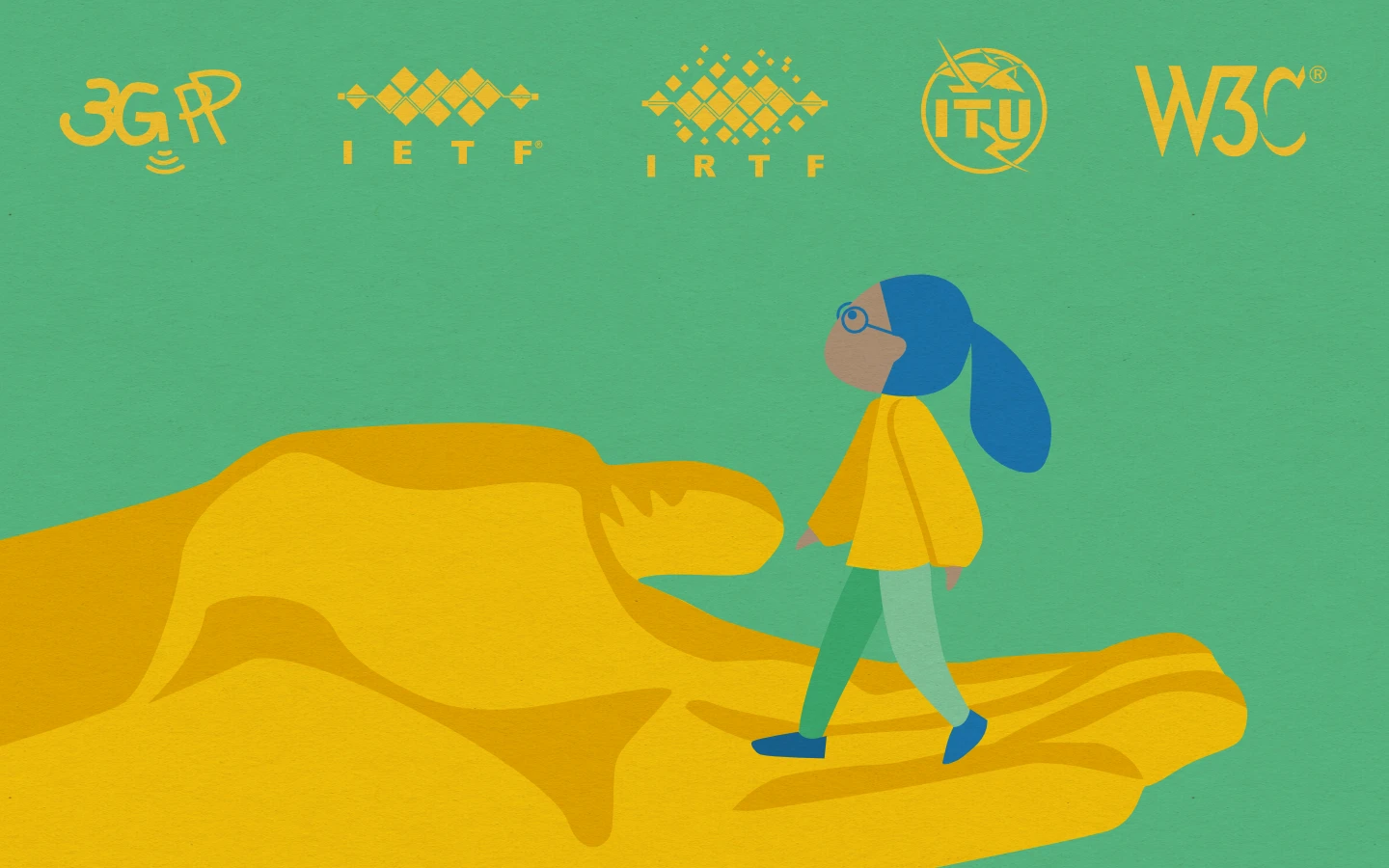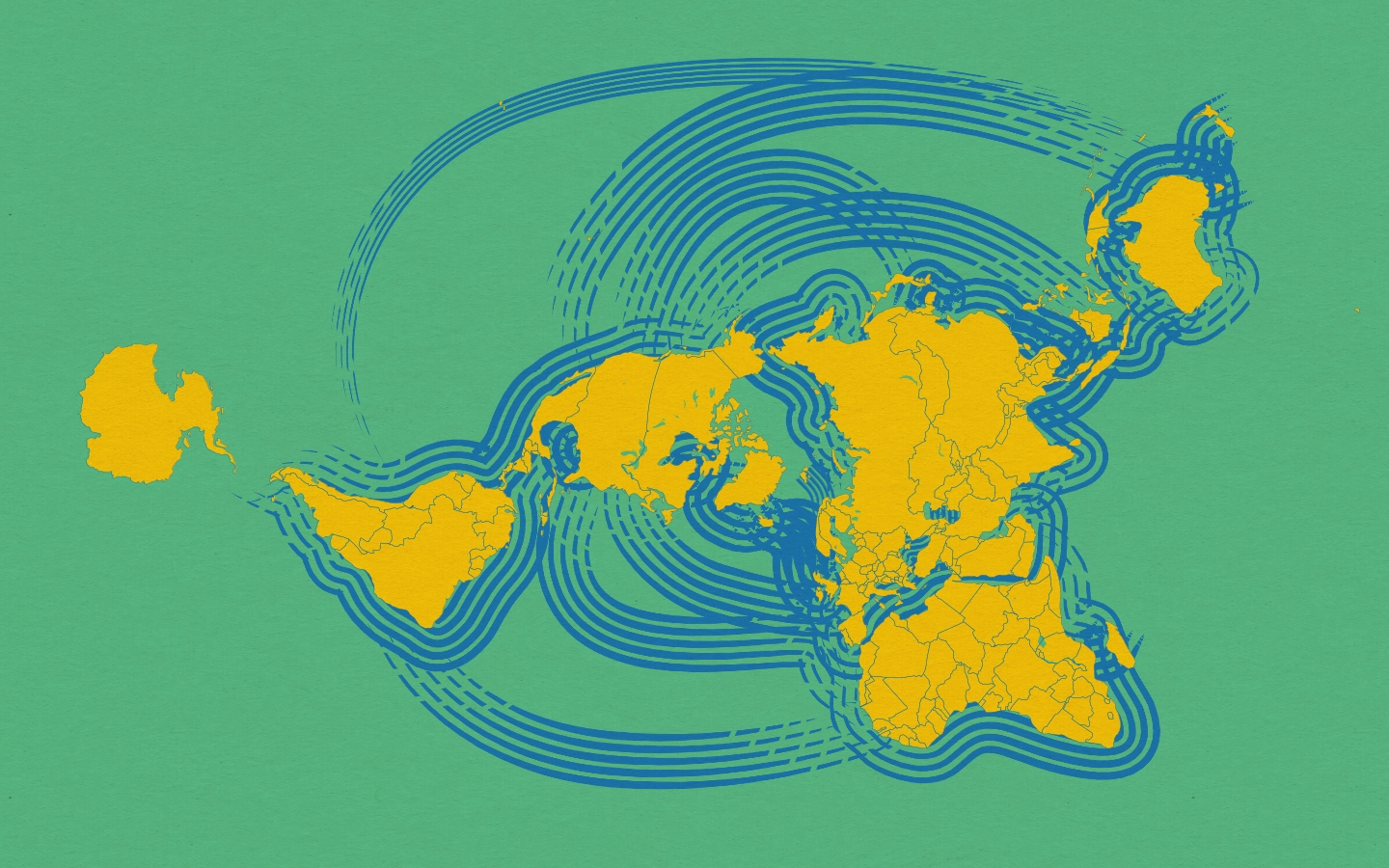The PITG Travel Fund in 2024

The PITG Travel Fund (PITG-TF) operates on a rolling basis to support underrepresented voices in Internet governance and standards bodies. We target individuals from civil society and public interest technology backgrounds who have historically been absent from these technically complex forums. This funding is critical because Internet infrastructure decisions made in these rooms affect billions of users worldwide, yet the voices of those most impacted by surveillance, censorship, and digital inequality are systematically excluded due to financial barriers and institutional gatekeeping.
The PITG Travel Fund supports participation in key organizations including the Internet Engineering Task Force (IETF), World Wide Web Consortium (W3C), International Telecommunications Union (ITU), Institute of Electrical and Electronics Engineers (IEEE), and the 3rd Generation Partnership Project (3GPP), among others, with the goal of promoting public interest perspectives, bridging knowledge gaps between technical communities and civil society, and cultivating sustained participation that increases diversity in these critical spaces where Internet standards are developed.
In 2024, the PITG-TF received 46 applications, and 12 were approved. Grantees attended a wide variety of events, mostly standards fora including IETF (120 and 121) and the Internet Corporation for Assigned Names and Numbers (ICANN 80 and 81), but also other governance spaces such as RightsCon, the Internet Governance Forum and the Association for Women’s Rights in Development (AWID) Forum. We are proud to say that geographic location of grantees was also diverse, as five of them were based in Africa (Morocco, Ghana, Kenya, Nigeria and Zimbabwe), one in Europe (Germany), three in North America (USA), two in South America (Brazil), and one in Asia (Palestine).
Although it is satisfying to see the participation of public interest technologists in these spaces grow, we recognize that there are still some barriers that as a Fund are hard to overcome. Two of the 2024 PITG TF grantees were not able to complete their travel because of visa issues, and some trips had to be delayed for the same reason. Whenever possible we have supported grantees in their visa application processes, arranged their flights and accommodation directly, and we have endeavored to maintain open and honest communication regarding our limitations as a small fund.
We are committed to support under-represented groups to allow them to have meaningful participation in technical standards forums and conversations. That is why we are constantly working on administrative adjustments that help us better respond to their needs and overcome constraints individuals face in attending in-person meetings.
Below are two examples of success of PITG-TF 2024 grantees and what they worked on with the Fund’s support.
Kris Shrishak
Germany, Europe
IETF 120, 20-26 July 2024
Kris has focused their participation in IETF on privacy enhancing technologies related working groups, including HRPC and GREEN BoF. In DULT, Kris had advocated for the threat model draft authors to get inputs from outside US/EU since IETF 119, but it had not still happened; DIEM BoF main use case is the use of digital emblems, something that many participants consider a too broad scope that should be limited to e.g., ICRC, with specific desirable properties; in SAAG and ISOPEN, questions regarding “national” cryptography and its potential standardization at the IETF were raised, but it was stated that IETF itself does not standardize new cryptography and relies on external experts including the academic community for that. Kris considers as problematic that DULT and PPM are working on corporate models and interests, with a lack of discussion and advances on reducing data collection.
“I realized the importance of BoF sessions during this IETF (I had previously only attended DULT BoF). They help scope working groups and speaking up at BoFs is one of the most effective ways to shape the work at the IETF.”
Tabitha Wangechi
Kenya, Africa
ICANN 81 Annual General Meeting, 9-14 November 2024
Tabitha’s participation was focused on contributing to discussions on Universal Acceptance and its critical role in fostering inclusivity on the Internet, and to help bridge the gap between grassroots realities and technical policy discussions. She shared insights on the barriers rural communities face in taking part in the domain names industry (mainly cost and access to localized digital content). In a discussion on how to build consumer confidence in the DNS registration data process, she emphasized on the importance of data protection and safety for communities.
Tabitha highlights the focus on DNS abuse mitigation during the whole meeting, which allowed her to understand that DNS abuse motivations are mainly financial, and it has to be taken into consideration while developing solutions. In her own words, “this insight will inform future capacity-building programs at Digital Rurals”.
The internet’s architecture is not predetermined—it emerges from the people who participate in shaping it. Every technical standard, every protocol decision, every seemingly abstract infrastructure choice ultimately determines whether the digital world becomes more open or more controlled, more inclusive or more exclusive. The PITG Travel Fund recognizes that meaningful change happens when diverse voices are present where these decisions are made. When Kris advocates for privacy-enhancing technologies at IETF or Tabitha brings rural perspectives to DNS policy discussions at ICANN, they are ensuring that internet governance reflects the needs of all users, not just those with traditional access to these spaces. Building a truly public internet requires more than good intentions—it requires sustained participation from the communities most affected by these technical choices and the funding to do so. PITG TF is just one of many efforts needed in that direction.
Please reach out to chairs@pitg.network if you are interested in applying for the fund, supporting the fund’s continued existence, or have any question related to the scope, topics or events that are in the PITG-TF remit.
Juliana Guerra is a co-chair of the Public Interest Technology Group.
More recent news

Geopolitics at the Internet’s Core – A Policy Practitioners Perspective
The Internet Protocol was borne out of conflict and that legacy is only intensifying as technical infrastructure becomes a proxy for political and economic power. Read more

The PITG Travel Fund in 2024
The PITG Travel Fund enables underrepresented voices to participate in, and promote, public interest technology work in key Internet governance and standards bodies. Read more

Tackling tech consolidation from the inside: insights from the PITG Dublin Unconference
How public interest technologists are working to resist surveillance, censorship, and corporate concentration in internet infrastructure. Read more